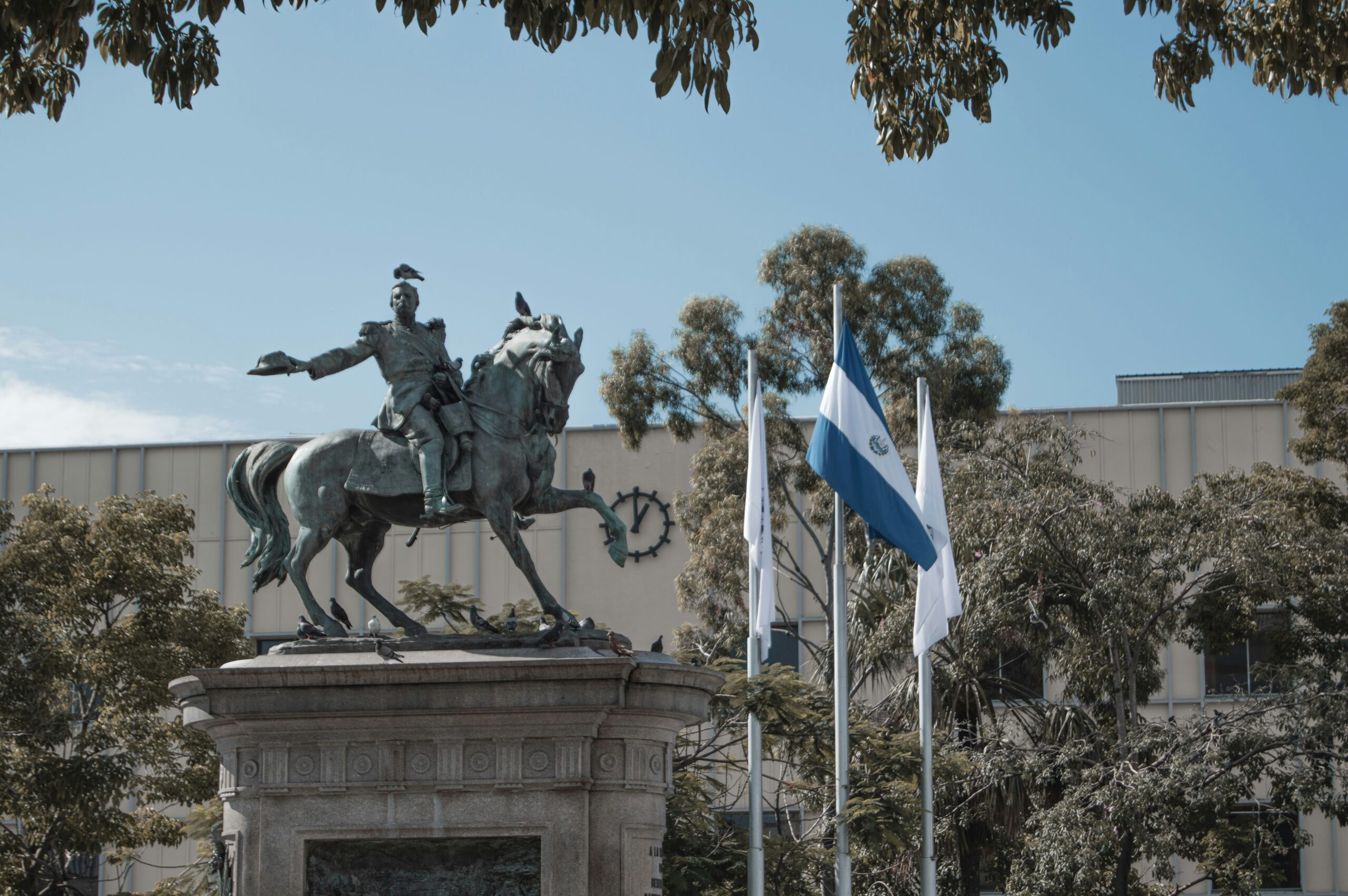
The pitfalls of replicating El Salvador’s security model across Latin America
El Salvador is going through a unique moment in its recent history because of the precipitous drop in violence and homicide rates by criminal gangs. In 2015, the Central American country was among the nations with the highest homicide rates in the world. Now, it closed 2023 with the lowest homicide rate in the Americas, at 2.4 per 100,000 inhabitants. In previous years, many Salvadorans migrated abroad as a result of gangland violence. According to UNHCR data, by the end of 2021, there were 89.3 million displaced people worldwide, including 1,186,879 refugees, asylum seekers, and internally displaced persons from Honduras, Guatemala, and El Salvador.
This transformation can be attributed to the efforts of Nayib Bukele, the current president of El Salvador, who assumed office on June 1, 2019, under the banner of his newly founded political party, Nuevas Ideas. Bukele, born in 1981 into a prominent business family, first entered politics as the mayor of Nuevo Cuscatlán in 2012 and later served as the mayor of San Salvador. Known for his dynamic and media-savvy approach, Bukele’s presidency has focused on anti-corruption and public security, notably through the Territorial Control Plan aimed at reducing gang violence. Even though his administration has achieved a significant drop in homicide rates, making El Salvador one of the safest countries in the Americas, his methods have drawn both praise and criticism for their authoritarian undertones and alleged human rights abuses.
Bukele’s approach to crime, particularly through the “Plan Control Territorial”, is characterized by its aggressive nature. Launched on June 20, 2019, this security initiative aims to dismantle organized crime by focusing on three key areas: controlling prison communications, cutting off financial resources for gangs, and strengthening law enforcement agencies. The plan includes measures such as transferring inmates, disrupting gang communications from prisons, and deploying police and military forces to reclaim territories controlled by gangs. Consequently, El Salvador now has the highest incarceration rate in the world, with 2,303 per 100,000 adults.
As with many countries dealing with societal problems, Bukele’s campaign and government policy have gained international attention. Some advocates suggest replicating his approach despite its controversial nature. In Honduras, for instance, President Xiomara Castro has implemented similar measures against gangs. In Ecuador, following the assassination of presidential candidate Fernando Villavicencio, the government declared a state of exception, mimicking Bukele’s tactics. Similarly, in Colombia, political discourse is increasingly influenced by Bukele’s methods, with figures like Diego Molano proposing megacarcels, something that Argentina has already started emulating. Chile’s political landscape has also been impacted, with right-wing factions advocating for tougher stances inspired by Bukele’s policies.
This interest in Bukele’s methods stems from similar realities across the region. Latin America is grappling with high levels of organized crime, violence, and insecurity, much of which is linked to drug trafficking and corruption. These countries have seen shifts in criminal activities and face significant challenges in maintaining public safety. Consequently, the pervasive violence, coupled with economic hardships and weak institutions, has made Bukele’s hardline approach appealing to those seeking quick and decisive measures to restore order and security.
Historically, similar models have been tried both in the region and abroad. Leaders like Duterte in the Philippines, Bolsonaro in Brazil, Nixon in the USA, Thaksin in Thailand, Uribe in Colombia have implemented stringent measures to combat crime and violence. Duterte’s war on drugs, for instance, resulted in numerous deaths and significant human rights concerns. Likewise, Bolsonaro’s tough stance on crime in Brazil often overlooks human rights. Nixon’s “War on Drugs” in the USA, Thaksin’s crackdown on drug dealers in Thailand, and Uribe’s aggressive tactics against guerrilla groups and drug traffickers in Colombia have all been marked by notable human rights violations. His model begins to resonate strongly in many countries in the region, including some that have tried similar formulas with extremely high human costs, as seen in Honduras, Guatemala, and Colombia in the early 2000s as well as Mexico in 2006.
In his speeches, including one at the United Nations, Bukele has argued that his tailored policies have successfully reduced crime rates, making El Salvador one of the safest countries in Latin America. He asserts that his approach has brought quick and effective results in terms of public safety and crime reduction, framing his actions within the context of national sovereignty and the right to self-determination. However, despite these claims of success, El Salvador faces significant challenges at home. This “ticking bomb” not only threatens to revert the country to its previous state but potentially to a much worse situation. The punitive response instituted is essentially a populist approach to addressing insecurity in the short term, and it comes at a very high cost to human rights. Regardless of the path El Salvador decides to follow from here on out, it is likely to find itself repeatedly arriving at the same point because the root problem is not being addressed—only some of the symptoms are being managed. Evaluating the success or failure of this model will heavily depend on what happens to the thousands currently in jail and whether the country can restructure to prevent a return to those conditions.
Moreover, Bukele’s approach is specifically tailored to the local context of El Salvador. Exporting this model to other countries could be unfeasible due to the unique elements characterizing El Salvador. Besides geographical and demographic factors, the particular nature of the criminal organizations, security forces, and political opposition groups must also be considered.
Criminal organisations within the country
The profile of the gangs that operate in El Salvador differs greatly from the many others that operate in the region. “The Maras,” since their inception in the country, have thus marked themselves as ordinary gangs, which although generated a lot of terror and violence, their illicit activities never had the caliber or ambitions of other groups operating in the region such as drug traffickers and guerrillas, among others, who not only had a very diverse portfolio of lucrative activities but also their level of funding, connections, and armament allowed them to compete against the state, leading to outcomes in countries like Brazil, Colombia, Mexico, and now Ecuador where a state response resulted in nothing more than a spiral of violence that mainly affected the civilian population and did not yield encouraging results. It is perhaps the first time in the region that an organisation has collapsed so relatively quickly and easily, but also that just after, no other has emerged to fill the void, and that is a particularity that should give us a good idea of why we are not talking about similar cases.
Security forces
The reaction, compliance with orders, and apparent resistance to infiltration by the military and police in El Salvador has been unlike any other country in the world. For example, its close neighbor Honduras under the leadership of President Xiomara Castro unsuccessfully tried to replicate the system, and one of the major failures of its implementation seems to be linked, among others, to some of its police and military personnel being bribed to serve the interests of criminal gangs through threats to their families or payments. Of course, the case of Honduras is not isolated, as there are others, like Venezuela, where high-ranking officials have been pointed out as being part of the same drug trafficking networks. Undeniably, this is a regional reality that adds an extra layer of difficulty when thinking about a national-caliber plan.
Opposition / political controls
None of Bukele’s fantasies could have been carried out without his overwhelming victories in congress which have allowed him to do as he pleases, among many things, a state of exception that has conferred all sorts of powers and has kept him far away from political control. This is not only thanks to his successes but also to the major failures of traditional parties in the past. Even so, we have seen Bukele in action who has not hesitated to enter Congress with armed soldiers during a session to intimidate the congress and show the great backing the armed forces have given him and him alone. It is difficult to think regionally that any other political figure who has an 80% popularity and a passive and discredited opposition that has done nothing more than watch their return to power move further away.
Conclusion
Bukele’s model superficially appears very attractive and it is quite simple to understand why it generates so much echo in a region where in 2021 had 38 of the 50 most dangerous cities in the world. However, the closest others can come to as seen in the past is to replicate the worst side of the model. The regional reality, however, has been that leaders do not have a commitment to democracy and are capable of sacrificing it for greater interests, especially for their political benefit and “fighting crime” has always been one of the best excuses for this.





























